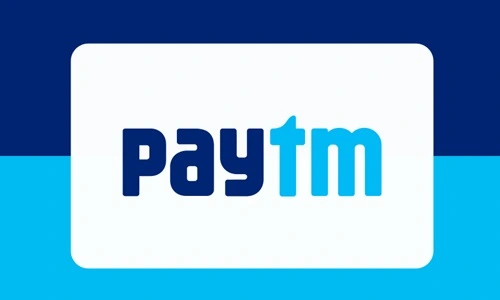India ranks second globally in internet user base, driving a surge in demand for digital financial services. Monthly data usage averages 20 GB, projected to reach 47 GB by 2027. Recent reports highlight Indian mobile data consumption surpassing that of the USA and China combined. As per government investindia portal the Indian FinTech sector, valued at $50 billion in 2021, is forecasted to reach $150 billion by 2025. With society nowadays relying on the internet, the leading FinTech firms in India, as of 2024, are tirelessly expanding their service offerings.
In this article, we’ll explore the top 10 leading FinTech companies in India.
What is FinTech?
Before we look at the best companies, let’s quickly learn about fintech. Fintech, short for financial technology, means companies that use technology a lot for financial services. They change how people do things with money like saving, borrowing, investing, and more. Most fintech companies started after 2000, got money since 2010, and aren’t fully grown yet. They make it simple to move money between different places, like accounts, people, countries, and groups.
List of Top FinTech Companies in India
1. Paytm
Paytm, short for “pay through mobile,” is an Indian company that does digital payments and other financial things. It’s in Noida, India. A guy named Vijay Shekhar Sharma started it in 2010 under a company called One97 Communications. Paytm lets people pay using their phones and helps stores get paid too. They use QR codes, a Payment Soundbox, Android-based machines, and an online payment thingy. Paytm also gives loans and lets you buy now and pay later. They do other stuff too like paying bills, sending money, selling tickets, and offering games.
2. Lendingkart
Lendingkart Technologies Pvt. Ltd. is a finance-tech startup operating in Ahmedabad, Bangalore, and Mumbai, serving all over India. The company uses big data analysis to create tools that help lenders check if borrowers can repay loans. It’s not a bank, but it lends money to small and medium-sized businesses in India. Lendingkart wants to make borrowing easier for small businesses. They use technology to quickly and accurately decide if a business can repay a loan. This helps business owners focus on their work instead of worrying about money problems.
3. MoneyTap
MoneyTap, a fintech company from Bengaluru, shook up digital lending. They teamed up with RBL Bank to offer personal loans, disrupting the industry. Recently, they obtained an NBFC license. They plan to join the co-lending sector with partners, aiming for competitive interest rates. Since 2016, MoneyTap has provided speedy, no-collateral personal loans. Notably, their loan process is straightforward. Their mobile app lets users monitor their borrowing activity easily.
4. Instamojo
In 2012, Sampad Swain, Akash Gehani, and Aditya Sengupta founded Instamojo. It helps small businesses go online. Instamojo is known for introducing payment links in India. It offers a simple payment solution for businesses to collect payments online. Besides payments, it provides tools and services for sellers to start online stores, understand store performance, and grow their businesses. Instamojo aims to be a “Growth Gateway” by offering connections, tools, and content to help businesses grow quickly.
5. Razorpay
Razorpay, an Indian fintech company, offers payment gateway services to sellers, stores, and online shops. Founded in 2014 by Shashank Kumar and Harshil Mathur, both alumni of IIT Roorkee, it supports various online payment options like credit cards, debit cards, net banking, and popular Indian wallets such as JioMoney and PayZapp. Users can manage payments through web and mobile apps. Introduced in 2017, Razorpay Route, Razorpay Smart Collect, Razorpay Subscriptions, and Razorpay Invoices help with tasks like managing cash flows, automating NEFT, and scheduled payment collection.
6. Zerodha
Zerodha, a top fintech firm in India, offers an online platform for investing in stocks, mutual funds, and derivatives. Their main trading platform, Kite, simplifies market data into charts and an easy-to-use interface. The Zerodha console provides customers with clear investment insights. Additionally, customers can purchase mutual funds without paying commissions, with delivery straight to their Demat account. Rainmatter, Zerodha’s fintech fund and incubator, invests in various fintech startups to enhance the Indian capital markets’ growth.
7. PhonePe
PhonePe is an Indian company that deals with digital payments and finances. Its main office is in Bengaluru, Karnataka, India. Sameer Nigam, Rahul Chari, and Burzin Engineer started PhonePe in December 2015. The PhonePe app, which works with Unified Payments Interface (UPI), started in August 2016. The app is available in 11 Indian languages. With PhonePe, people can send money, recharge phones, pay bills, shop, invest, and buy insurance and gold digitally. Over 3.6 crore stores, both online and offline, accept PhonePe, covering 99% of India’s pin codes.
8. CRED
CRED, an Indian company in Bangalore, does FinTech stuff. Kunal Shah started it in 2018. It’s an app for paying with credit cards and getting rewards. You can also pay rent and borrow money for a bit. People say Cred is worth too much and doesn’t have a good plan to make money.
9. ZestMoney
ZestMoney, started in 2015 by Lizzie Chapman, Priya Sharma, and Ashish Anantharaman, is India’s biggest and fastest-growing fintech company for lending to consumers. It aims to help over 300 million households in India without credit cards or other formal finance due to limited credit history. ZestMoney’s technology makes digital finance affordable and accessible, earning them recognition as a 2020 Technology Pioneer by the World Economic Forum.
10. Policy Bazaar
Policy Bazaar is a top insurance website in India. It started in 2008. At first, it compared insurance prices and gave information about insurance. It grew quickly and now offers many services. Besides comparing insurance, it helps with canceling or renewing policies and settling claims.
Conclusion
So, those are the “top 10 leading FinTech companies in India” that we talked about in the article. The fintech industry changed a lot because the internet grew quickly in the 1990s. Stuff like electronic payments, online businesses, online shopping, mobile banking, and digitizing banks all happened because of it. Nowadays, new fintech companies are making big advancements. They’re exploring new areas that traditional businesses haven’t touched. India’s economy, which relies a lot on finance, has gotten better because of fintech in the past few years. Lending and insurance are also changing a lot because of fintech.

















